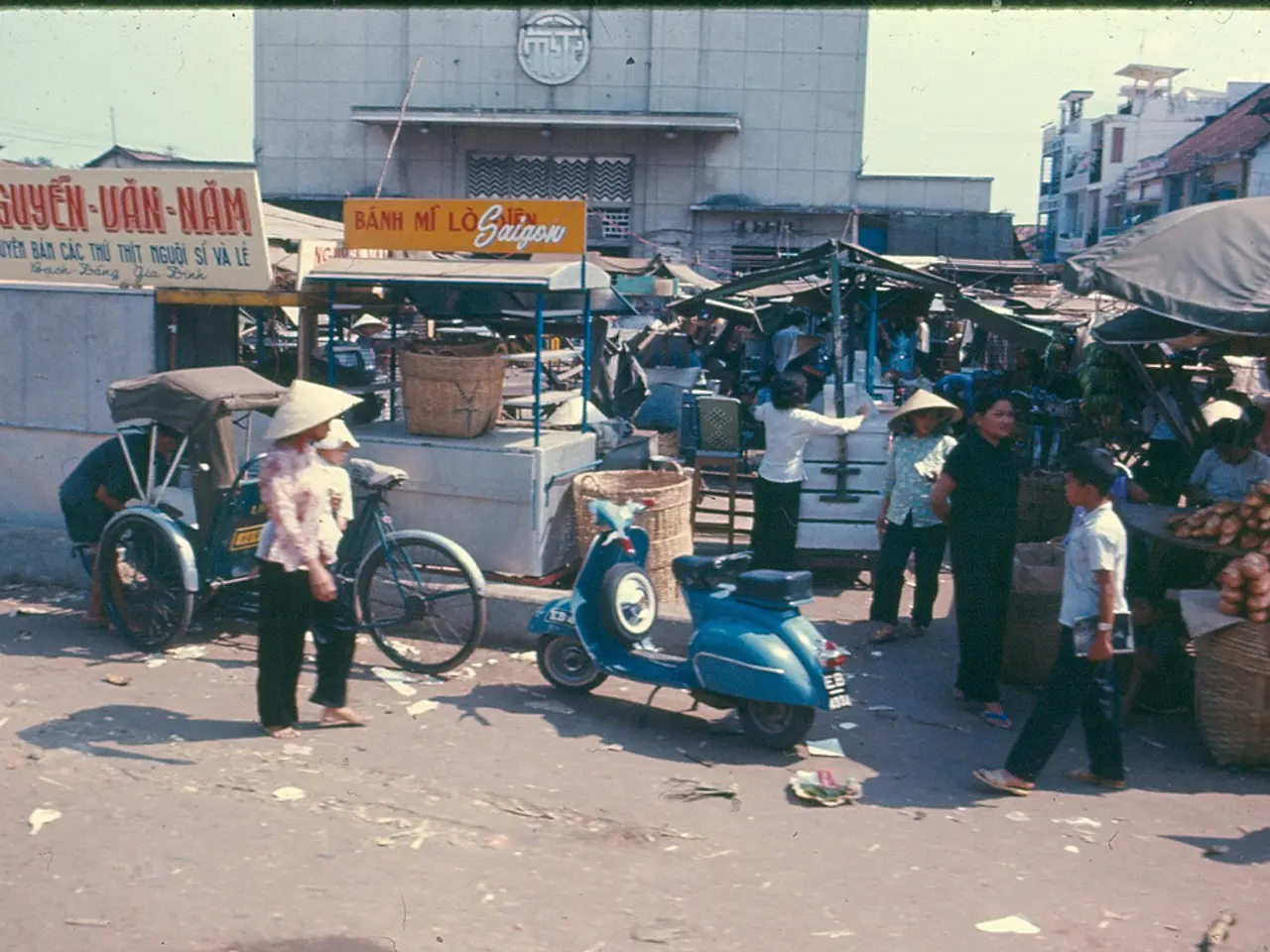Repurposing intricate garbage into tangible earnings
Central Group's "Love the Earth: Zero Waste" Initiative Makes Strides in Reducing Thailand's Food and Plastic Waste
Thailand's retail giant, Central Group, has launched a sustainability initiative called "Love the Earth: Zero Waste" in response to the triple planetary crisis of climate change, biodiversity loss, and pollution, as highlighted by the United Nations Environment Programme (UNEP). The initiative, primarily targeted at office workers at the CentralWorld Office Tower, has been running for three years and has seen significant success in key tourism-dependent provinces such as Samui, Chanthaburi, and Surat Thani.
The program, which was officially launched on July 24 at CentralWorld, has made a substantial impact in promoting household waste sorting and reducing carbon emissions. Key progress details include:
- In 2024 alone, the initiative helped reduce 4,939.08 tonnes of CO₂ equivalent emissions, which is approximated to the carbon sequestration of about 235,000 trees.
- It diverted 43,600 tonnes of waste from landfills through partnerships with independent third-party organizations, ensuring transparency and accountability.
- A prior effort under the campaign, the "Think Dee Roadshow with Recycle Day," targeted office workers at CentralWorld Office Tower and collected 7,633.98 kg of recyclable waste, leading to an additional 27,055.33 kg CO₂ reduction, equivalent to planting 2,842 trees.
Central Group's approach to sustainable waste management is comprehensive, combining community education, incentivized recycling, industry collaboration, and targeted regional focus in tourism-heavy areas. The initiative engages multiple partners across sectors including Central Restaurants Group, Zen Corporation Group, MK Restaurant Group, The Minor Food Group, Starbucks, and Food Passion, alongside community stakeholders such as temples and educational institutions.
Mr. Pichai Chirathivat, Executive Director of the Central Group, aims to tackle these issues head-on, emphasizing the urgency of raising public awareness. The program's achievements underscore its transparency, accountability, and measurable environmental impact.
The "Love the Earth: Zero Waste" initiative is a testament to Central Group's commitment to sustainability and environmental conservation. As the program continues to evolve, it is expected to make even greater strides in addressing Thailand's food and plastic waste crisis.
[1] Central Group. (2025). Central Group's "Love the Earth: Zero Waste" Initiative. Retrieved from https://www.centralgroup.com/sustainability/zero-waste/ [2] Department of Environmental Quality Promotion. (2025). Waste Management in Thailand. Retrieved from https://www.doep.go.th/waste/ [3] United Nations Environment Programme. (2025). Thailand's Waste Management Challenges. Retrieved from https://www.unep.org/regions/asia-pacific/countries/thailand/waste-management [4] World Wildlife Fund. (2025). Plastic Pollution in Thailand. Retrieved from https://www.worldwildlife.org/threats/plastic-pollution [5] Greenpeace. (2025). Thailand's Food Waste Problem. Retrieved from https://www.greenpeace.org/thailand/en/campaigns/reduce-food-waste/
- In their pursuit of reducing Thailand's food and plastic waste, Central Group's 'Love the Earth: Zero Waste' initiative has attracted attention from various sectors of the environmental-science community, such as the Department of Environmental Quality Promotion, United Nations Environment Programme, World Wildlife Fund, and Greenpeace. [5, 2, 3, 4]
- To combat climate-change consequences, the retail-industry giant Central Group has not only focused on waste management but has also ventured into finance, partnering with prestigious companies like Starbucks, Food Passion, Central Restaurants Group, Zen Corporation Group, MK Restaurant Group, and The Minor Food Group, acknowledging the need for joint efforts across the industry. [1]
- As the 'Love the Earth: Zero Waste' initiative progresses, it is anticipated that strategies to address Thailand's waste management challenges in tourism-heavy provinces, such as Samui, Chanthaburi, and Surat Thani, will not only lead to further carbon emissions reductions and waste material diverted from landfills but also inspire other retailers to follow suit, improving the environmental health of the country. [1, 2]




